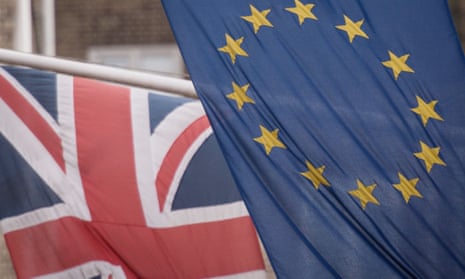Why are British judges still fretting about European law?
Lord Neuberger, president of the UK supreme court, has sounded the alarm about a grey area between British and EU law, even after Brexit. The country’s most senior judge is voicing the concern of many in the legal community that long-running cases could be left in limbo and the role of the European court of justice (ECJ) in establishing legal precedent will be unclear. We “would hope and expect parliament to spell out how the judges would approach that sort of issue after Brexit, and to spell it out in a statute,” Neuberger told the BBC.
Isn’t this exactly what the government has promised to sort out?
The Department for Exiting the EU (DexEU) has indeed recently published a position paper that attempts to address this question. However, in common with other such papers, it is better at setting out the problem than providing the answer. “The UK recognises that beyond a certain point in proceedings, where considerable time and resources have been invested in ECJ proceedings, it may well be right that such cases continue to an ECJ decision,” it concluded. At what point and whether it is “right” were not specified. Similarly, the paper suggested that “historic [ECJ] case law will be given the same binding, or precedent, status in UK courts as decisions of the UK supreme court, which can, where appropriate, depart from its previous judgments”. In other words, it is all as clear as mud.
Can’t the ‘enemies of the people’ just work it all out for themselves then?
It is precisely such labels that judges are keen to avoid. Having been labelled “enemies of the people” by the Daily Mail for defying the government over its interpretation of article 50, the supreme court is wary of being left with the sole responsibility for policing our new legal borders in future. “If [the government] doesn’t express clearly what the judges should do about decisions of the ECJ after Brexit, or indeed any other topic after Brexit, then the judges will simply have to do their best,” says Neuberger. “But to blame the judges for making the law when parliament has failed to do so would be unfair,” he added.
Surely these instances will be quite rare?
The vast majority of British criminal and civil cases never reach the European level and will be even less likely to after Brexit. The DexEU position paper stated “many of these types of case occur relatively rarely and, in practice, the number of UK cases is low. For example, in 2016, there were 23 preliminary references made by courts in the UK, and one infraction against the UK”. However these are often the high-profile and expensive ones. The department’s own annual report recently revealed that the government has already clocked up substantial legal bills dealing with the process of Brexit alone. After staff costs, legal bills were its most significant area of spending, totalling £3.7m or 15% of DexEU’s budget. Failure to clear up the grey areas for everyone else could result in far bigger legal headaches.
Wouldn’t it be simpler to maintain a role for European courts?
Unfortunately, this a political red line for Theresa May. The prime minister has made clear she regards an entirely independent judicial system as a major prize of Brexit. The government has also adopted further red lines which clash with the EU negotiating demands. “The UK does not consider that the ECJ should remain competent to rule on cases on which it has not been seized before the day of withdrawal, even where the facts arose before withdrawal,” said the position paper. This freedom, argues the government, is a “position consistent with international legal precedent, placing the UK in the same position as all other third countries”. Except, of course, that those other countries have not spent the last four decades intimately entwining their legal systems together.









